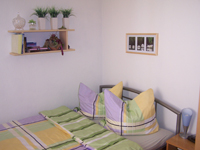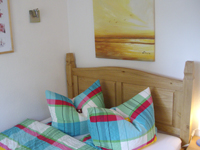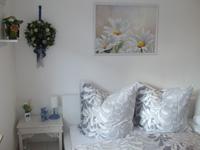The world brand and world fragrance 4711
The 4711 brand (in words: forty-seven and eleven) is well known to everyone. It's a classic perfume brand and the perfume is fragrant. The brand belongs to the German company Mäurer & Wirtz GmbH. & Co. KG. 4711 is commonly known and loved as Colognes.
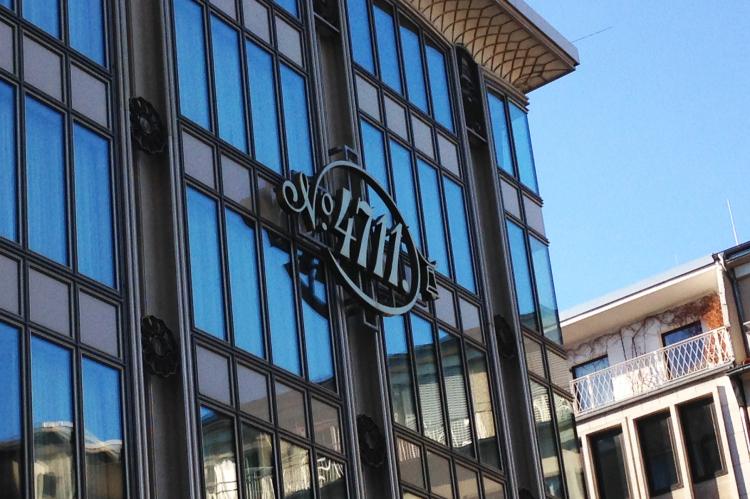
The production of this perfume brand has been around for a long time. It was probably first produced in 1799. Since then it is immensely popular. It is a unique mixture and recipe that is used for this perfume. Only later was the refreshing perfume called 4711 and as such a brand also world famous. Wilhelm Mülhens sold the perfume first in Cologne. To date, 4711 is produced and has expanded its range many times. 4711 is also called Original Eau de Cologne. This designation may officially carry the cologne. The brand is truly everyone's idea. It is a world brand. 4711 is also a trademark under trademark law. This was confirmed in 1875. The company Mäurer & Wirtz carries different scents in their offer. 4711 serves as its umbrella brand. The brand creation 4711 has a parent company. It is located in Cologne in the Glockengasse. This building could not be kept in its original state. Nonetheless, it is the destination of many tourists from all over the world. The building has its own showroom. Public guided tours are carried out here. Once a week, curious and interested visitors can view the exhibition. An attraction is the carillon of the house. This is played every hour, which has a nice appeal, even for children.
The history of the world brand 4711
How the Brand Originated - From the Legend and the Beginnings of Perfume : Wilhelm Mülhens was a wealthy merchant. There is a legend about the origin of this perfume. This legend speaks of the merchant being given the perfume by a carthusian monk. The year was 1792. The merchant celebrated his wedding. The monk named Franz Maria Carl Gereon Farina gave the merchant the recipe for an "aqua mirabilis". Latin for "miracle water". This story is a legend. But in every legend is a grain or more, truth! What is confirmed historically, however, is the fact that Wilhelm Mülhens lived in Cologne from 1797. In Glockengasse, where the parent company is still located today. Since 1799 he sold here the "cologne water". It should be noted that monks have always cultivated medicinal herbs in monasteries. Various herbal concoctions are known from the time. It came the French occupation. The Besatzer gave the house in the Glockengasse a Konskriptionsnummer. This was "4711". The number was a house number and was assigned to the house. This number took over the company and created the brand 4711 from it. As brand 4711 it crystallized out in the 1830s. Also noteworthy is the fact that 4711 was not sold as a fragrance at the time. The "miracle water", the "aqua mirabilis" was sold as a remedy. It should be taken internally. So it seems obvious that the monk used remedies for the recipe as well. Napoleon Bonaparte issued a decree in 1810. This said that secret recipes of all kinds would have to be disclosed unconditionally. It was about the internal remedies. The businessman Wilhelm Mülhens did not want to disclose the recipe and ingredients. He wanted to avoid this decree. Therefore, he applied a "trick" and called the cologne from now on toilet water. He stated that this was only an externally applicable water. So he bypassed the obligation to publish the ingredients. From that time on, the cologne was only sold as perfume, as perfume. But it must be said that even today's operators and manufacturers do not see 4711 as pure perfume. It is declared as an "aroma therapeutic". Its fragrance should be inhaled. It certainly contains essential oils, which have a very positive effect on the organism. The mood is also positive.
The son of the founder, Peter Joseph Mülhens, supported his father from 1825. Later, he took over the business alone as the managing director of the company. The son worked hard on a national, as well as international network of representations. Between the years 1820 to 1840, the distribution of the Eau de Cologne was even extended to India. Indonesia was also supplied. That was certainly a clever move by Peter Mülhens. He also ordered in 1854 the new construction of the house in the Glockengasse. The special shape of the vial is iconic. They were designed in the 1820s. It's a Molanus bottle. It is named after its inventor. The shape is angular. This is very helpful when it comes to attaching labels. Also, the transport and storage are simplified. Mülhens liked this design and he took it over for 4711. However, he caused a so-called goiter to appear between the bottle shoulder and the cap. This has the meaning that the alcohol content of the content expands with heat. This original bottle of that time is still offered and sold in style to this day. Everybody knows the greenish-blue label and the distinctive shape of 4711. Peter Joseph Mülhens made sure that the vial and the label established themselves. The label also shows the world-famous Cologne Cathedral. Another picture shows the Bonn Minster. Above it is a Gothic band. This is described by the French words "Dieu et mon droit". To German: "God and my right". This is actually the motto of British monarchs. This, in turn, was sent by Mülhens. For the church pictures together with the inscription gave the water a hint of holy water. It certainly made the sales figures soar. He also chose the colors blue and gold as house colors. Mülhens was followed by other fragrances in the company and increased the product range in addition to scents of skin creams, soaps and powders.
There was a dispute over the name
Originally the water was called "Franz Maria Farina, Glockengasse 4711, Cöln". By 1881, the company was struggling with litigation over the use of the name "Farina". The Farina family and others sued the company. The name "Farina" in the perfume brand should be prohibited. Johann Maria Farina was considered the "inventor" of the "cologne water". His name was therefore known in Cologne. He was indeed regarded as the author of the "aqua mirabilis" in Cologne. The company Johann Maria Farina, whose location was opposite the Jülichs-Platz, understandably wanted to lead the name exclusively and alone. Mülhens resorted to a different tactic to retain the name. He often had business partners named Farina. One of them was Carl Franz Maria Farina, who came from Dusseldorf. There were always complaints from Farina companies. In the short term, Franz Maria Farina from Milan was the business partner of Mülhens. Mülhens then registered in 1862 as his company as "Franz Maria Farina in Glokkengasse 4711 opposite the post office" in the commercial register. But the Kgl. Higher Regional Court of Cöln Ferdinand Mülhens on April 27, 1881 finally prohibited the use of the name Farina. Ferdinand Mülhens was since 1872 managing director. His father Peter Joseph Mülhens died in 1873. Then Ferdinand took over the company. The use of the word "Farina" went exclusively to the perfume manufacturer Roger & Gallet, a French company. After the judgment, the company was entered in the commercial register as "Eau de Cologne and perfumery factory Glockengasse No. 4711 opposite the horse mail of Ferd. Mülhens". In France it was called "No. 4711 Eau de Cologne".
The founding years and the 20th century
Ferdinand Mülhens was also k.u.k. Court supplier and supplied the yard. Ferdinand Mülhens further expanded the company and founded several branches in America. One of them was built in 1875 in New York City. In Russia, a branch was established in 1880 in Riga. The company flourished and expanded. The company in Glockengasse became too small. 1874 parts of the production were therefore moved to Cologne-Ehrenfeld in the Venloer Straße 241, corner Vogelsanger road 66-100. Here also soap was produced in the years between 1874 and 1943. In the Second World War it was stopped. But in 1946 production was resumed. Soaps were made here until 1991. The fourth owner of the company was his son Peter Paul Mülhens (1875 - 1945). Under his leadership, the operation was modernized. With the help of technical aids, the modernization was driven forward. In 1908 the advertising was strengthened. Among other things, it was advertised that the company even supplied the Viennese court under the Emperor of Austria, with 4711. After the First World War, export relations were again promoted and built up. The now lost branches were also reinstalled. In the period between 1920 and 1935, the economic situation was disastrous. The conditions were extremely difficult, but still many new fragrances were introduced. Tosca was re-presented in 1921. The perfume Sir was distributed from 1935. The operation bakam 1928 the title court supplier of King Gustav V of Sweden. It was followed in 1930, the title court purveyor of the Prince of Wales and in 1955 by King Hussein of Jordan. It came in the Second World War to destroy the parent company in the Glockenstraße. The factories in Cologne-Ehrenfeld were also destroyed. The widow of Peter Paul Mülhens, Maria Walburga Mülhens, took over the management of the business in 1945. In just ten years, the company flourished under her leadership and enjoyed worldwide renown. The production of soap and the production of colognes was resumed in 1946. In addition, toothpaste, hair and skin creams were produced. Already in 1948, the export established again. The company was handed over in 1962 to the grandson, Ferdinand Mülhens. The company was renamed in December 1990 in Muelhens KG. The designation of 4711 has now been dropped.
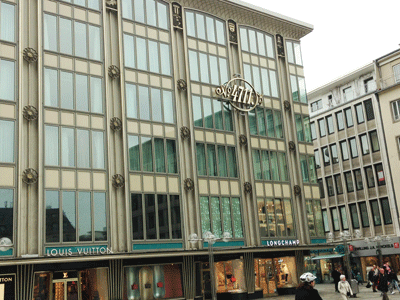
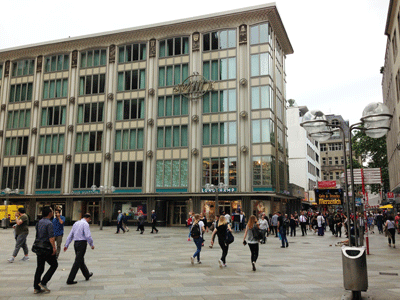
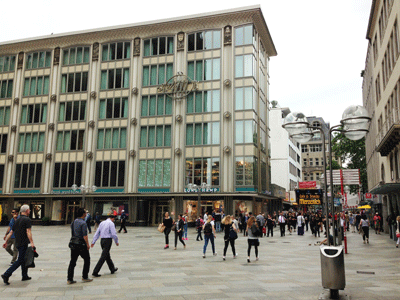
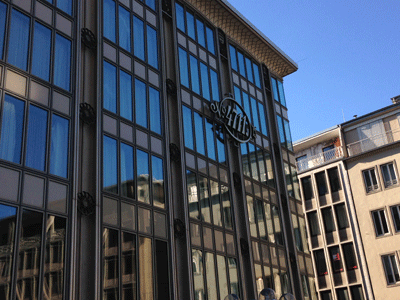
The sale to Wella and the acquisition by Mäurer & Wirtz
The sale to Wella AG in Darmstadt took place in 1994. Wella acted as Cosmopolitan Cosmetics GmbH., together with the Muelhens company. In 2003, Wella AG was taken over by the cosmetics manufacturer Procter & Gamble. Procter & Gamble is a detergent and cosmetics manufacturer. Procter & Gamble announced in 2006 that it would disassociate itself from the rights of the brands of the company Mülhens. These were the brands 4711, Tosca, Sir Irish Moss and Extase. They did not fit into the concept and marketing strategy of the Procter & Gamble Group. There was a bidding process that lasted for several months. The contract was awarded in 2006 to the Stolberg fragrance house Mäurer & Wirtz. This belongs to the Dalli Group. It came on May 23, 2007 for the first production of 4711. The company Mäurer & Wirtz was able to refresh the antiquated image of the brand 4711 successfully. Among other things, this was achieved by enriching the product range with a number of products. Fresh fragrances and products for the modern age. Today, in addition to the traditional real Cologne water, also Nouveau Cologne and Acqua Colonia are offered. In 2011 there was an extensive advertising campaign for 4711 - Nouveau Cologne. The logo has been modernized and redesigned in a timely presentation and form.
The story behind house number 4711
The French occupation forces were in Germany. On October 3, 1794, the Council of the City of Cologne blessed the proposal of the Watch Commission. He said that all houses in the city of Cologne must have a number. In addition, all the houses had to be lit accordingly. On October 6, 1794, it was occupied by the French. Charles Daurier (1761 - 1833) took over the command of Cologne as city commander. Heinrich Josef Metternich, a printer, requested permission to publish an address calendar. The 2nd Cologne address book in 1797 still the widow of Wilhelm von Lemmen as owner and resident. Wilhelm Mülhens is first mentioned in the 3rd Cologne address book as a resident. His job title is given as "speculative transactions". At that time he is not yet run as a manufacturer of colognes. This numbering was abolished in 1811 again. This was followed by street-by-street numbering, which is still practiced today. The Glockengasse with the number 4711 then received the number 12. The publisher Theodor Franz Thiriart, noted in a preface to the address book of 1813, the claim that there was no house numbering. Before the French troops arrived, he said. Only in 1795 a numbering was required. So a legend was born, the French had a numbering done. Peter Joseph Mülhens moved in 1854. He moved his residence from Glockengasse 12 to the house in Glockengasse 26 - 28. It had a façade in neo-Gothic style and was opposite the horse post. The old residence was empty for the time being. Later it was sold and demolished. In a bomb attack it came to the total destruction of the house in the Glockengasse 26 - 28. Only in 1963, a new building was built. The architecture was adapted to the style of the old building. The location was also new. The building was built on the corner of Schwertnergasse 1 and Glockengasse 4. The street corner got arcades in the neo-gothic style. There is a picture of a French officer. He sits on a horse and writes the number 4711 on the house facade in the Glockengasse. But this was just an advertising strategy. It was used by Karl Petau in 1949. This image was also used as a template for a woven carpet. He was commissioned in the 1950s. The 1950s and 1960s took up the scene again and again. The number 4711 came later. Also a bell symbol, as an illustration for the Glockengasse, was taken to it.
The traditional scent
The composition of the traditional scent is kept strictly under lock and key until today. Some ingredients are known, but the exact recipe / mixture is not revealed.
The following fragrance notes are included in 4711:
- Bergamot, lemon and orange are included as top notes.
- Rosemary and lavender form the basis of the heart note.
- Neroli acts as a base note.
It should be said that lemon and orange make up the wonderful freshness of the fragrance. Lavender and rosemary form the lovely, floral note.
Something weird about it
The term 4711 is used in medical teaching for the standard size of the spleen in humans. It is regarded as Merkreg 4711. A healthy spleen is therefore 4 cm wide, 7 cm high and 11 cm long, standardized.
Some of today's fragrance creations
Today, there are a number of other fragrant scents under the 4711 umbrella brand.
The miracle water
4711 Wunderwasser has a cool, refreshingly designed exterior. The color of the bottle is blue. There are two scents to it. One for men, called Intense. The other for women is called Elixir. It's a magical fragrance that the name Wunderwasser does honor.
Aqua Colonia: Some fragrances are nature inspired
A number of different scents from 4711 have been created. Here nature has been taken as a model. The scents have a positive effect on the mood. They are available in several fragrances, such as:
- Lime & Nutmeg: The Aqua Colonia has a sweet and sour aroma. This comes from the lime and it gives the new fragrance a refreshing as tangy touch. In contrast, nutmeg is used here. A fragrance creation of the special kind. Nutmeg has aphrodisiac.
- Pink Pepper & Grapefruit: The scent has been euphoric and the aroma is fresh and aromatic. Pink pepper and grapefruit were used for the fragrance. This is an absolutely unique, refreshing creation. The aroma lifts the mood.
- Blood Orange & Basil: This aroma has a stimulating effect on the senses. It is full of power and zest for life. The scent is created exotic. Blood oranges and basil are the focus here. Basil is spicy, while blood orange has a stimulating effect. A fragrance that brings a good mood!
The scents make you feel like shopping in Cologne in the main store!
Cologne accommodation close by!
You want to walk to the 4711 headquarters? Then book one of our Fewos Cologne , then you can easily reach the Glockengasse on foot! Just cross the Rhine over the Deutz bridge and stroll through the old town. In about 14 minutes you have reached the Glockengasse! We look forward to your inquiry!
